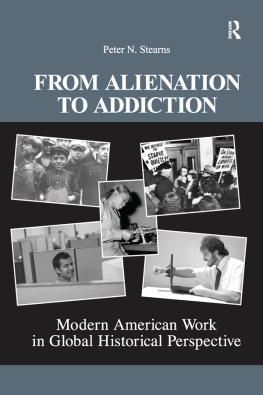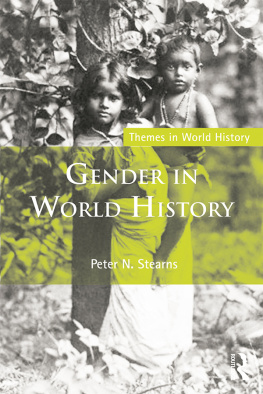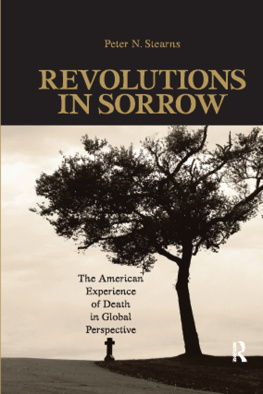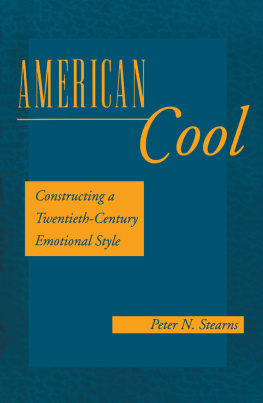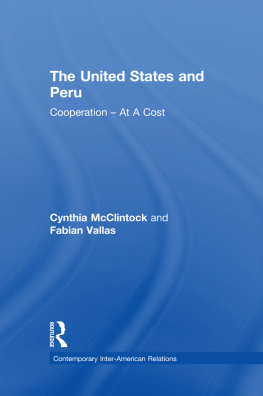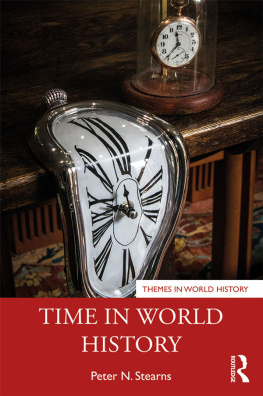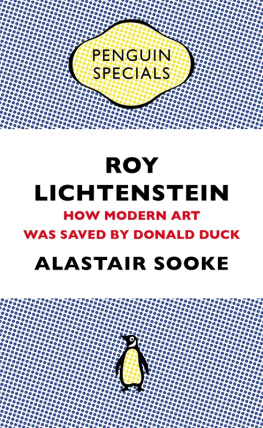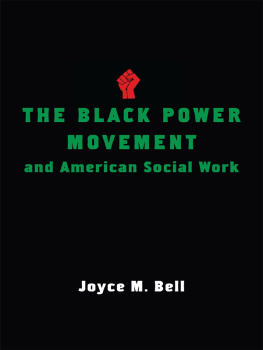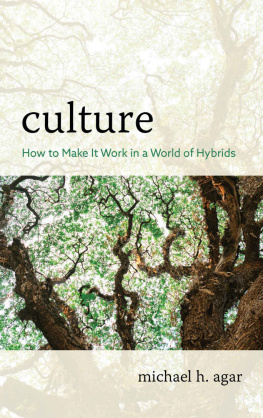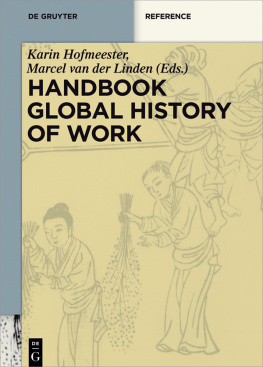From Alienation to Addiction
U.S. History in International Perspective
Editors: Peter N. Stearns and Thomas W. Zeiler
EDITORIAL ADVISORY BOARD
Donna Gabaccia, University of Minnesota
James Gump, University of San Diego
Dirk Hoerder, Arizona State University, Universitt Bremen
Peter Kolchin, University of Delaware
Robe Kroes, University of Amsterdam and University of Utrecht
NOW AVAILABLE
Revolutions in Sorrow: The American Experience of Death in Global Perspective, by Peter N. Stearns
From Alienation to Addiction: Modern American Work in Global Historical Perspective, by Peter N. Stearns
FORTHCOMING
Diverse Nations: Explorations in the History of Racial and Ethnic Pluralism, by George M. Fredrickson
Comparing American Slavery: The U.S. Peculiar Institution in International Perspective, by Enrico Dal Lago
From Alienation to Addiction
Modern American Work in Global Historical Perspective
Peter N. Stearns
First published 2008 by Paradigm Publishers
Published 2016 by Routledge
2 Park Square, Milton Park, Abingdon, Oxon OX14 4RN
711 Third Avenue, New York, NY 10017, USA
Routledge is an imprint of the Taylor & Francis Group, an informa business
Copyright 2008 , Taylor & Francis.
All rights reserved. No part of this book may be reprinted or reproduced or utilised in any form or by any electronic, mechanical, or other means, now known or hereafter invented, including photocopying and recording, or in any information storage or retrieval system, without permission in writing from the publishers.
Notice:
Product or corporate names may be trademarks or registered trademarks, and are used only for identification and explanation without intent to infringe.
Library of Congress Cataloging-in-Publication Data
Stearns, Peter N.
From alienation to addiction: modern American work in global historical perspective / Peter N. Stearns.
p. cm. (U.S. history in international perspective)
Includes bibliographical references and index.
ISBN-13: 978-1-59451-504-0 (hardcover: alk. paper)
1. LaborUnited StatesHistory. 2. WorkUnited StatesHistory. 3. Working classUnited StatesHistory. 4. Work ethicUnited StatesHistory. 5. Industrialization. I. Title.
HD8066.S69 2008
331.0973dc22
2007044220
ISBN 13: 978-1-59451-504-0 (hbk)
ISBN 13: 978-1-59451-505-7 (pbk)
Designed and Typeset by Straight Creek Bookmakers.
For Donna Kidd, with much love and many thanks
Contents
Veronica Fletcher provided reliable and imaginative research assistance for this book. I am grateful to many students at several institutions over the years, including George Mason University, for their interest in this topic. Donna Kidd provided useful suggestions as well. Leslie Lomas, as Paradigm editor, deserves my thanks for supporting this project. Annette Tallant and Laura Bell oversaw the preparation of the manuscript. I am grateful to the two anonymous readers for their good suggestions as well as their positive response.
This series offers a new approach to key topics in American history by connecting them with developments in other parts of the world and with larger global processes. Its goal is to present national patterns in mutual interaction with wider trends.
The United States has functioned in international context throughout its history. It was shaped by people who came from other countries. It drew political and cultural inspiration from other places as well. Soon, the nation began to contribute a variety of influences to other parts of the world, from new trade patterns to the impact of successful political institutions.
It is increasingly clear, however, that the field of U.S. history has not usually captured this perspective. National developments have been treated as significant but relatively isolated events. Distinctive American characteristicssometimes systematized into a larger pattern called American exceptionalismhave been assumed but not tested through real comparison. Even the nations growing role in world affairs has sometimes taken a back seat to domestic concerns. This kind of narrowness is inaccurate and unnecessary; it feeds a parochialism that is out of keeping with the global presence of the United States. A nation cannot be understood without placement in the perspective of other nations and transnational factors.
At a time when international developments play an increasing and incontestable role in any nations affairs, the need for a new approach to national history becomes inescapable. This certainly applies to the United States. Calls for internationalizing the U.S. history survey course reflect this realization. The calls are welcome, but we need to translate them into accessible treatments of key topics in U.S. historyfrom obvious diplomatic and military initiatives to less obvious themes that in fact involve global interactions as well, themes that go deeply into the nations social and cultural experience.
The project of internationalizing American history involves drawing a variety of connections. This series will compare American developments to patterns elsewhere to see what is really distinctive, and why, and what is more widely shared. Influences from other places, from technological innovations to human rights standards, factor in as well. The U.S. impact on other parts of the world, whether in the form of new work systems, consumer culture, or outright military intervention, constitutes a third kind of interconnection.
The resultand the central goal of this seriesis to see American history in a revealing new light, as part of a network of global interactions. Wider world history gains from this approach as well, as comparisons are sharpened by the active inclusion of the United States, and American influences and involvements are probed more carefully.
Overall, a global window on the domestic interiors of U.S. history complicates conventional understandings, challenges established analyses, and brings fresh insights. A nation inextricably bound up with developments in every part of the world, shaping much of contemporary world history as well, demands a global framework. This series, as it explores a variety of topics and vantage points, aims to fill this need.
A n American manager had his own comparative work story, early in the twenty-first century. He was accustomed to national work patterns, which for his occupational bracket put a premium on visibly long hours. So he often stayed at the office into early evening, along with a number of colleagues, assuming that his supervisors would take notice. Then he took a position with a British company in London. But when he tried to apply his customary patterns, he discovered that both peers and supervisors found him oddwhy would anyone stay late? Was this a sign of some revealing inefficiency on his part that he could not get things done during the normal day? He finally resolved his dilemma in part by claiming that he worked a bit late to avoid the worst of London trafficthis, but not an extra measure of devotion to work itself, was an acceptable excuse. But there was no question that he had encountered a bit of a culture gap where basic work habits were concerned.
His experience relates closely to larger patterns. Compared to most people in industrialized societies, Americans today work quite hard, at least by several measurements. A full 30 percent of all Americans do not take all the days off and sick days assigned to them annually, in use-it-or-lose-it programs; and while there are many reasons for this, a sense of the importance of work, and sometimes an inability to imagine anything more interesting, contributes strongly. Most strikingly, American vacation time is noticeably more limited than what is available in Western Europe or Japan. The Japanese, long and correctly regarded as a work-focused people, passed American vacation levels a few years back. Many Americans, with a week or two of annual leave, contrast vividly with, say, German workers, who enjoy five weeks a year at least. In 2005, 14 percent of all employed Americans said they had not taken more than a few days off in two years. Not surprisingly, given these patterns, American vacation time has increased very little in the past few decades, again a contrast with other industrial societies. Does the vacation differential and its result, more work during the average American year, reflect greater work devotion, meaner employers, or other factors? Does American culture, as some authorities have argued, encourage a particularly vigorous kind of work addiction?

